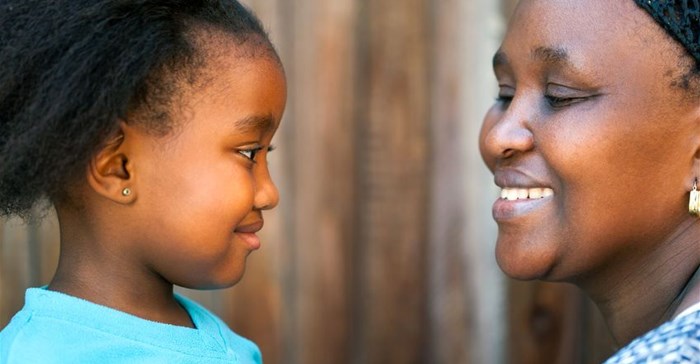
With about 7 billion people living in the world, natural resources have come under tremendous strain globally. Rising temperatures, water scarcity, double burden of nutrition and increasing gaps between the poor and the rich are some of the challenges facing the world.
Some corporate organisations have come to understand that companies must be a part of the solution to these issues. They have realised that these issues do not only affect our communities but also challenge the commercial sustainability of the business.
Unilever brands itself as a purpose-driven company, whose purpose is simple: to make sustainable living commonplace.
As part of a globally driven approach to integrate solutions to sustainable development into business operations, a number of Unilever Nigeria’s brands have adopted social missions, in which the brands help to address social issues. Unilever Nigeria then partners with NGOs or governments to ensure these missions have scale.
Force for Good programme
In line with Unilever’s commitment to sustainable living, the company is spearheading efforts to help reduce the prevalence of iron deficiency anaemia in Nigeria, especially among women and adolescent girls through Knorr Force For Good programme.
Globally, anaemia is said to affect almost a quarter of the world’s population, that is 1.62 billion people. In Nigeria, almost one in two women of reproductive age and 75% of children under five years suffer from anaemia. 50% of these cases are caused by a lack of iron in the body, which is often diet-related. Some of the early symptoms of anaemia are fatigue and decreased ability to work and people with anaemia are also associated with an increased risk of mortality and cognitive loss in those who survive.
Knorr’s Force For Good includes visiting schools in rural areas where cases of anaemia are prevalent. The programme educates adolescent girls and their mothers on the importance of cooking more iron-rich nutritious meals through the Knorr Green Food Steps. The company, by contributing to efforts to improve the nutritional value of commonly consumed meals, increase the iron intake of the population, hopes to help decrease the prevalence of iron deficiency anaemia in Nigeria.
By the end of 2016, the Knorr Force For Good programme reached 75,000 households (including mothers and daughters) through a four-week behavioural change programme. Knorr is now challenging itself to change the behaviour of millions of mothers and teenage girls by making nutritious, iron fortified cooking more desirable and affordable.
A scientific study with the University of Ibadan indicated that 41% of respondents from the states visited - Nasarawa, Benue, Kaduna, Abuja and Kogi - had started adding leafy, iron fortified vegetables and iron fortified cubes to their stew.
By end of 2017, the Force For Good programme will have reached 20 million direct and indirect contacts and the aim is to reach 100 million by 2020. One state where the programme has been particularly successful is in Kaduna where Unilever Nigeria has partnered with the Kaduna State Government to empower women and teenage girls through Knorr Force For Good and Women’s Empowerment Shakti. Partnerships like this are vital in helping Unilever Nigeria reach as many people as possible.
‘Business must be part of solution’
The Knorr Force For Good programme is just one of the many interventions that underlines Unilever’s commitment to ensure that “business must be part of the solution”. These brand social missions are integral to Unilever’s Sustainable Living Plan, the company’s blueprint for a truly sustainable business, launched in 2010. They are helping to drive the vision to decouple growth from environmental impact while also increasing the company’s positive social impact.
Others include, the Pepsodent Brush Day and Night Oral Health campaign through which Unilever seeks to tackle poor oral hygiene and tooth decay and improve oral health amongst Nigerians.
Since inception of the Oral Health Schools Programme, Unilever has directly reached over 2.5 million pupils in 4,500 Government primary schools with products (Pepsodent toothpaste and toothbrushes), free educational materials and brand instruction ambassadors.
With the signing of a Memorandum of Understanding with the Federal Government of Nigeria, through the Federal Ministry of Health, the firm further commits to promoting oral hygiene by educating 10 million Nigerian pupils by 2020. Another important example of how corporates can partner with governments to bring their programmes and most importantly their impact to scale.
With the high unemployment rate continuing to grow, Unilever Nigeria’s ambition is to use their business model to create 1 million job opportunities for Nigerian women and youth. The aim is to empower women and youth and ultimately help address unemployment and poverty trends in Nigeria.
A flagship intervention is the “SHAKTI” (with different Nigerian names like Mbuli, Gbemiga, Tallapi) project, an initiative that creates opportunity for women to increase their earnings and improve the quality of their lives through the sales of Unilever products.
Gbemiga registers, trains and provides women in rural communities with capital to begin trading Unilever products to households and small stores within their communities. Working in partnership with non-profit organisations such as the Growing Business Foundation, they have already reached 2000 women across 10 states. These women also undertake basic bookkeeping trainings and workshops on nutrition.
Unilever Nigeria also launched its Customer Development Motorbikes Project as a means of promoting entrepreneurship by operationalizing third-party sub-distributors across Nigeria with two-wheeler bikes. This initiative and the Lipton Push-Cart programme is expected to create more jobs along the company’s supply chain in the months ahead.